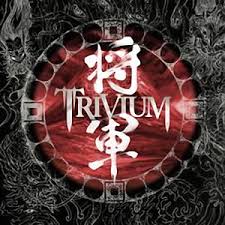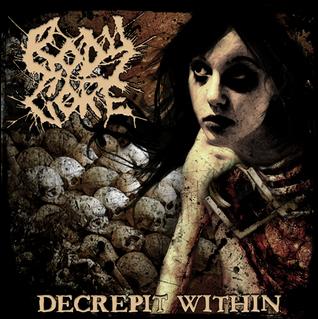There seems to be an ever growing trend for bands to emphasize their "break away" from more conventional or established music, and often this starts with a titular overhaul of the classification of their music, this is often done by placing a prefix with a noun or adjective of choice (which often reflects on the genre), and then adding the suffix core. This article will touch the tip of the iceberg and introduce the reader with a number of followings who have done exactly so.
Grindcore
Generally an association of crust punk and death metal, but pioneered by early bands who fused thrash metal and hardcore punk, Grindcore is a genre that come into being mid 80's. Renowned for its exceptional speed, heavily down tuned guitars, blast beats and generally inaudible screams/growls, Grindcore boasts a heaviness unmatched even today. Evolving and in its early days associated with the Crust Punk the Anarcho Punk scenes, lyrical content was often highly politicized and almost poetic in nature, however as death metal dug itself deeper in the genre lyrical themes shifted to reflect this, by covering subjects of vile and malevolent nature, simultaneously the distinction between the hardcore punk scenes and Grindcore became more apparent. Throughout the decades it has existed, it has spawned numerous sub-genres although there is much debate whether these sub-genres are merely separated on the basis of lyrical content alone. Grindcore has often mixed with a vast array of other genres very well and it also has developed certain identifiable trademarks such as the microsong and the blast beat.
Caninecore
I will be less encyclopedic on this one given that if I did, I would probably have to attend a medical tribunal to assess my mental health. I chose this genre next merely for the fact the Coolidge adaption of Napalm Death's Scum, is pure genius, if you click the picture it should bring up the full sized version, perhaps it will make a fun game of spot the difference.
I think to make the claim that your band is fronted by animals and you are the first to do so, is certainly worthy of allowing you to create your own subgenre. As the term canine implies, the animal element of the band is dogs, sadly to my overactive imagination the dogs don't take on any instrumental roles, but purely a vocal performance. In a strange twist of cognitive thought processes, the only things my mind can't come to terms with the fact that the band refer to themselves as "The Orchestra", yet I find it perfectly acceptable for them to use dogs? The band make the statement that while some bands try to sound as animalistic as possible, they have never explored the idea of cutting the crap and instead actually using the real deal, namely two pit bull terriers, and they do quite an impressive job of it. I highly recommend checking them out, even on the strength of their novelty value also check out the unassociated and wrongly titled Napalm Death Chihuahua.
Deathcore
 Grindcore and Death metal are often wrongly associated with this genre, and this has often caused much frustration to fans of Grindcore and Death metal , to explain to a general novice the distinctions. There are a number of borrowings from the death metal sphere which are integrated into metalcore, strong use of palm muting and break downs are the most recognisable traits. Songs majorly follow a set song system, featuring chorus', numerous breakdowns and few simple riffs. The general flaw with Deathcore, it tries to create a "Brutal" sound, but it is achieved in a very simple manner, and as such many music listeners find a lack of musicianship, professionalism and creativity in the music and therefore find it mundane and very generic. Additionally image seems to be of far more importance than the music, and the genre is highly commercialised and as such traditional metal heads have a general abhorrence for the genre (myself inclusive, please note I tried so hard to write that part proffessionaly and not rant on about how it boils my blood!).
Grindcore and Death metal are often wrongly associated with this genre, and this has often caused much frustration to fans of Grindcore and Death metal , to explain to a general novice the distinctions. There are a number of borrowings from the death metal sphere which are integrated into metalcore, strong use of palm muting and break downs are the most recognisable traits. Songs majorly follow a set song system, featuring chorus', numerous breakdowns and few simple riffs. The general flaw with Deathcore, it tries to create a "Brutal" sound, but it is achieved in a very simple manner, and as such many music listeners find a lack of musicianship, professionalism and creativity in the music and therefore find it mundane and very generic. Additionally image seems to be of far more importance than the music, and the genre is highly commercialised and as such traditional metal heads have a general abhorrence for the genre (myself inclusive, please note I tried so hard to write that part proffessionaly and not rant on about how it boils my blood!).Metalcore
With its humble origins in the 80's, metalcore exploded with commercialism and mainstream success as being the new face of metal post 2000. Once again a fusion of hardcore punk and lighter metal elements, it broke away from bring associated with Crossover as the use of breakdowns became a fundamental feature defining the music. Although it had mass commercial success until recently, it is becoming less popular as bands fail to keep the following going and it seems to be a popular gateway genre for people to discover either more punk or as more often is the case heavy metal.
Noisecore
This music is loud, incoherent and more often than not obnoxious. Musicianship is cast aside, and music is played as fast as possible and without any structural constraints, creating an undecipherable mess. Often labelled as an "Anti-Music" ,the general objective is to achieve as much noise as possible. In recent years electronics have played an ever more progressive role in it, from sampling of various media's, electronic drum beats which achieve superhuman levels and often computers are used to skew the music, usually with a static fuzz.
Crustcore
Early Grindcore outfits evolving from the Crust Punk scene, would often play a form of punk that was highly politicised, and had a significantly stronger ratio of hardcore punk to metal. Crustcore has been the term coined to such bands that follow this formula, most bands that come under this moniker are actual bands that were around at the time of Grindcore's inception or soon after, sadly therefore there is a lack of new blood in the genre. I often associate Crustcore as being the grinding opposite of Death grind, not just in musical formulation, but also in lyrically content.
Stenchcore
My knowledge on this subject is minimal so feel free to enlighten me. Stenchcore is a filthy breed of Crust Punk, instead of as traditional punk dictates lyrics are to focus on a counter-culture or a critic of mainstream culture, Stenchcore instead loves to take a focus on screaming out a vile descriptive illustration on pestilence, decay and anything truculent to the bone. Stenchcore came into being after the general demise of Crust Punk, it borrowed many of its elements from other musical genres, the lyrical theme and morbid overtones taken from death metal, and an attempt to borrow heaviness from Grindcore. Although its speed and ferocity never accumulates to that of Grindcore, it is is a strong step up from Crust Punk, and definitely recommended for fans of either genre.
Mathcore
Sophisticated rythmns are played with irregular time signatures, and often with polyrythmns, all the whilst being played on very unconventional chords, thus creating the sense of information overload if one where to look for a general sense behind it. The above explanation is a more polite theory to explain the genre, many critics have argued that all the above is merely a sign of poor musicianship, and by putting all those together you are not creating a musical anti-systemic approach, but you are merely just creating a mess, and by throwing in hundreds of random riffs you are bound to find at least one in the song that is decent, even if it only lasts the duration of 3 seconds. Take your side.
Mincecore
A cult like following of Grindcore spawned by the prolific mincemaniacs Agathocles, artists that belong to this very select community are notorious for their number of releases, but the most defining trademark is the lyrical content, which often advocates a mockery of current day socio-political shortcomings or using music as a form of outreach to their political ambitions, their anti this and that stance is so long, I dread to list its entirety. The music itself is rather primitive, and hasn't evolved since the birth of Grindcore, but it has that instinctive appeal about it.
Hardcore Punk
The oldest of the genres listed, this 70's offshot of Punk rock was meant to be louder and faster than its predecessor, and gained a large underground following. It later spawned various sub genres and movements each with their own agenda and following, however some elements remained the same throughout such as the strong D.I.Y ethic, a dislike for larger record labels thus favouring and creating numerous independent record labels, and a distinctive fashion, which has become more identifiable than the music.
Body Core
Not an actual genre, but in fact a band name, these Swedish metal heads, bring in a new experimental approach to death metal, described as being as if "John Zorn would have written Brutal Truth's Extreme Conditions Demand Extreme Responses". Although a bold overstatement, it does hold true for parts, and is a fantastic listen to start to finish.



--1991.jpg)



.jpg)

